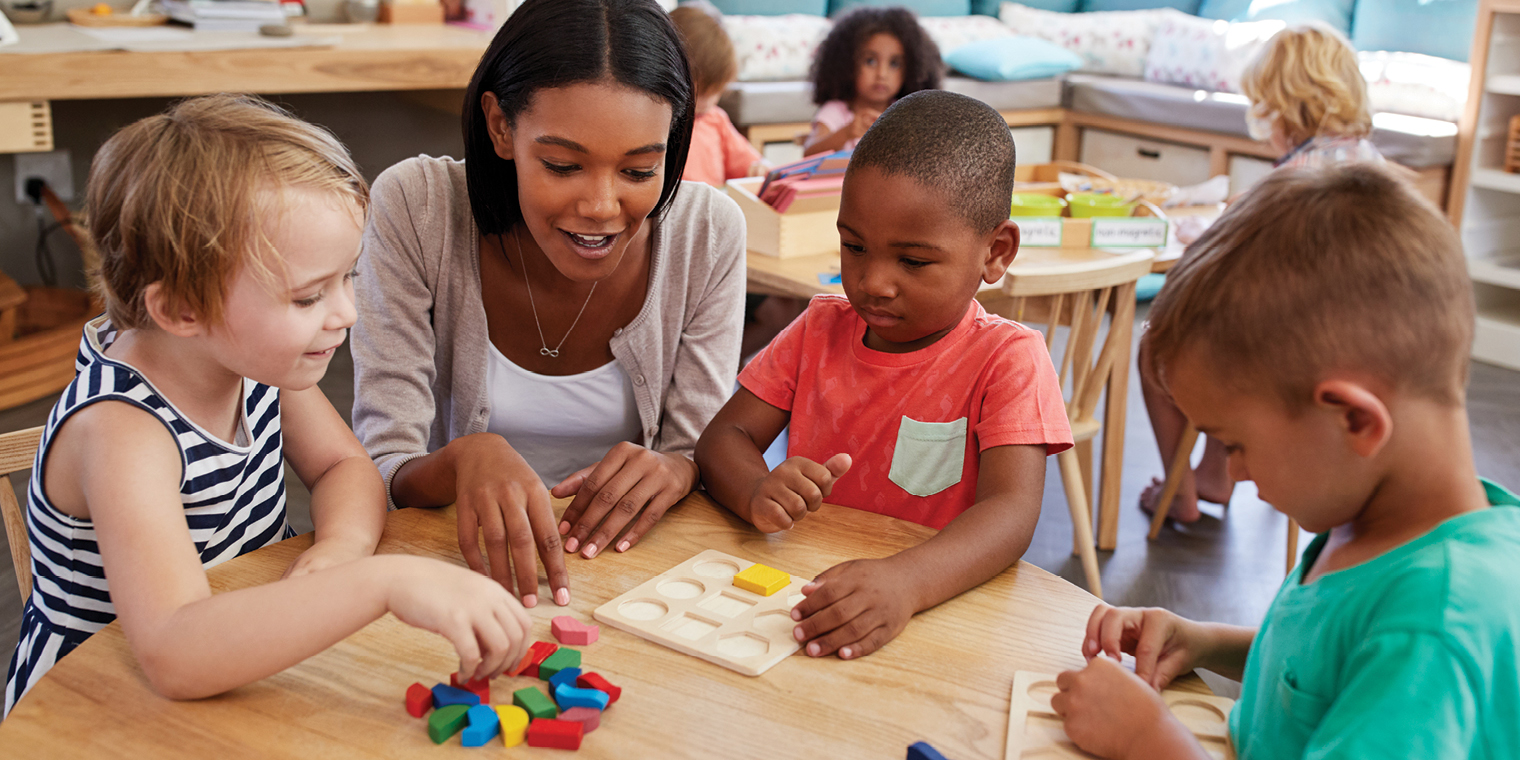With the rate of change in our world accelerating and all kinds of new opportunities being created by technological innovation, lifelong learning is now a necessity skill for keeping up-to-date, staying relevant and thriving.
Yet despite a wide range of devices in the hands of students and educators, a recent global report by the Organization for Economic Co-operation and Development (OECD) suggests education systems that are heavily invested in computer-reliant curriculums are not seeing any noticeable improvements in their results for reading, math and science. Rather, the study indicates that students who use tablets and computers very often tend to do worse than those who use them moderately or not at all.1
For parents concerned about their child’s success, not only during their academic years, but well beyond, a Montessori School experience could make a world of difference.
Instead of tech, teachers at Montessori Schools, such as the Montessori School of McLean, prefer a more hands-on, experiential approach to learning that contrasts sharply with the rush to fill classrooms with the latest electronic devices. The role of imagination in learning is emphasized and an integrated approach to the intellectual, practical and creative development of pupils is offered.
Created and pioneered by Maria Montessori over 100 years ago—first in Italy and then in the United States where Alexander Graham Bell founded the Montessori Educational Association at his Washington, DC home— the Montessori Method was, and is, based on a lifetime of study and observation of how children really learn.
The 4,500 Montessori schools in the United States (22 alone in the Tysons/Reston/Herndon area) focus on developing and educating children ages 18 months through 12 years old, with a curricula of hands-on experiences intended to appeal to a child’s innate hunger for knowledge. At Montessori, children actively learn to love learning.
Montessori’s method focuses on personal development rather than exams, producing more mature, creative and socially adept children, studies have found. Children of different ages share the same classes, and are encouraged to collaborate and help each other. Special educational materials are used to keep children interested, and there is an emphasis on practical life skills.
Psychologists have also reported that across a range of abilities, children at Montessori schools out-performed those given a traditional education. Five-year-old Montessori pupils were better prepared for reading and math, and 12-year-olds wrote significantly more creative essays using more sophisticated sentence structures.2
And in an era when civility seems to be disappearing, some of the most impactful effects of a Montessori experience can be seen in social skills and behavior. Studies continue to show that Montessori children display a greater sense of justice and fairness and interact in more emotionally positive ways, having learned to use problem-solving skills to effectively and peacefully negotiate with others.
In almost every aspect, a Montessori education offers a fundamentally different experience than a traditional education, with clear advantages at every stage of a student’s development.
With its foundation in self-direction and cooperative activities, a Montessori program helps a child develop a strong self-image, high levels of academic and social competence as well as the confidence to face challenges with optimism. Encouraged to make decisions from an early age, Montessori-educated students are problem solvers who can make appropriate choices, manage their time, and work well with others.
What ultimately sets a Montessori student apart is empowerment: students ready for the next step in their education and able to find their own path on the journey to becoming thoughtful, passionate and productive global citizens.
1. OECD (2015), Students, Computers and Learning: Making the Connection, PISA, OECD Publishing
2. Science Magazine (2016), Evaluating Montessori Education. A.S. Lillard & N. Else-Quest






